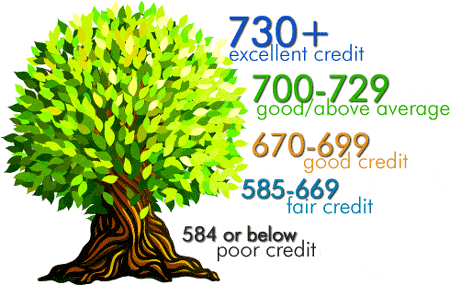
Missed mortgage payments, short sales, and foreclosures can all drastically bring down a credit score.
Lenders use credit scores to measure how well a person handles debt. Credit scores range from 300 to 850, with 650 and below considered poor credit. A mortgage makes up a big part of a person’s credit score and often is the most important part of a person’s credit profile.
And just missing a single mortgage payment by 30 days can ruin a credit score, say FICO and VantageScore, which have studied the impact mortgages can have on credit scores. For borrowers, that can be nearly as destructive as a foreclosure to a credit score, according to the companies.
On the other hand, loan modifications, which is when lenders approve new loan terms, have a “very, very minimal” impact to credit scores, possibly dropping the borrower’s score by 10 or 15 points, Sarah Davies, the senior vice president for analytics at VantageScore, told The New York Times.
A good credit score is important not just for financing home purchases, but employers increasingly check credit as well as landlords when seeking rentals. Also, poor credit scores can also mean higher costs on car loans and credit cards.
How a Credit Score Is Affected
FICO evaluated three various scenarios of mortgage holders — a borrower with a great credit score (780), a borrower with good credit (720), and a poor credit borrower (680) — in a study it conducted last month. Here’s the impact FICO found:
? 30 days late on a mortgage payment: The 780 credit score borrower has her credit score fall to 670-690. The 720 credit score borrower has his fall to 630-650. The 680 credit score borrower falls to 600-620.
? Short sale, deed in lieu of foreclosure, or settlement, assuming the balance has been wiped out: The 780 credit score borrower falls to 655-675; the 720 credit score falls to 605-625; and the 680 credit score drops to 610-630.
? Foreclosure, or short sale with a deficiency balance owed: The 780 credit score drops to 620-640; the 720 credit score falls to 570-590; and the 680 credit score decreases to 575-595.
Source: “Fallout From a Poor Credit Score,” The New York Times (April 24, 2011)
For all your real estate needs, call or email
John J. O’Dell
Real Estate Broker
O’Dell Realty
(530) 263-1091
foreclosuremortgagemortgage paymentshort sale

Enough with the doom and gloom about home ownership. Brett Arends explains why owning a home is a good thing.
With newspaper headlines declaring that foreclosures are on the rise, short sales are difficult to navigate, and the rate of home ownership is on the decline, some home buyers may no longer see the value of purchasing a home. However, there are several reasons why home ownership makes economic, financial, and personal sense.
MAKING SENSE OF THE STORY FOR CONSUMERS
- Home prices have declined approximately 30 percent from their peak, according to Standard & Poor’s Case-Shiller Index, which is good news for home buyers hoping to purchase a house at an affordable price. As a result, statewide affordability reached 64 percent in the second quarter of this year, meaning 64 percent of California households could afford to purchase an entry-level
home in the state.
- Although home buyers should not view a home strictly as an investment, generally speaking, homeownership does offer risk capital. The median home price in California has risen year-over-year for nine consecutive months, which implies home equity will increase over the next few years.
- Owning a home also can be beneficial because it acts as “forced savings.” While the monthly mortgage payment may be slightly higher than renting an apartment, most renters do not put the difference into a savings account. The portion of a monthly mortgage payment that’s allocated toward the principal of a mortgage shouldn’t be viewed as a cost, but rather as a forced monthly saving, because in the long run it’s building equity in the home.
Read the full story in the Wall Street Journal


